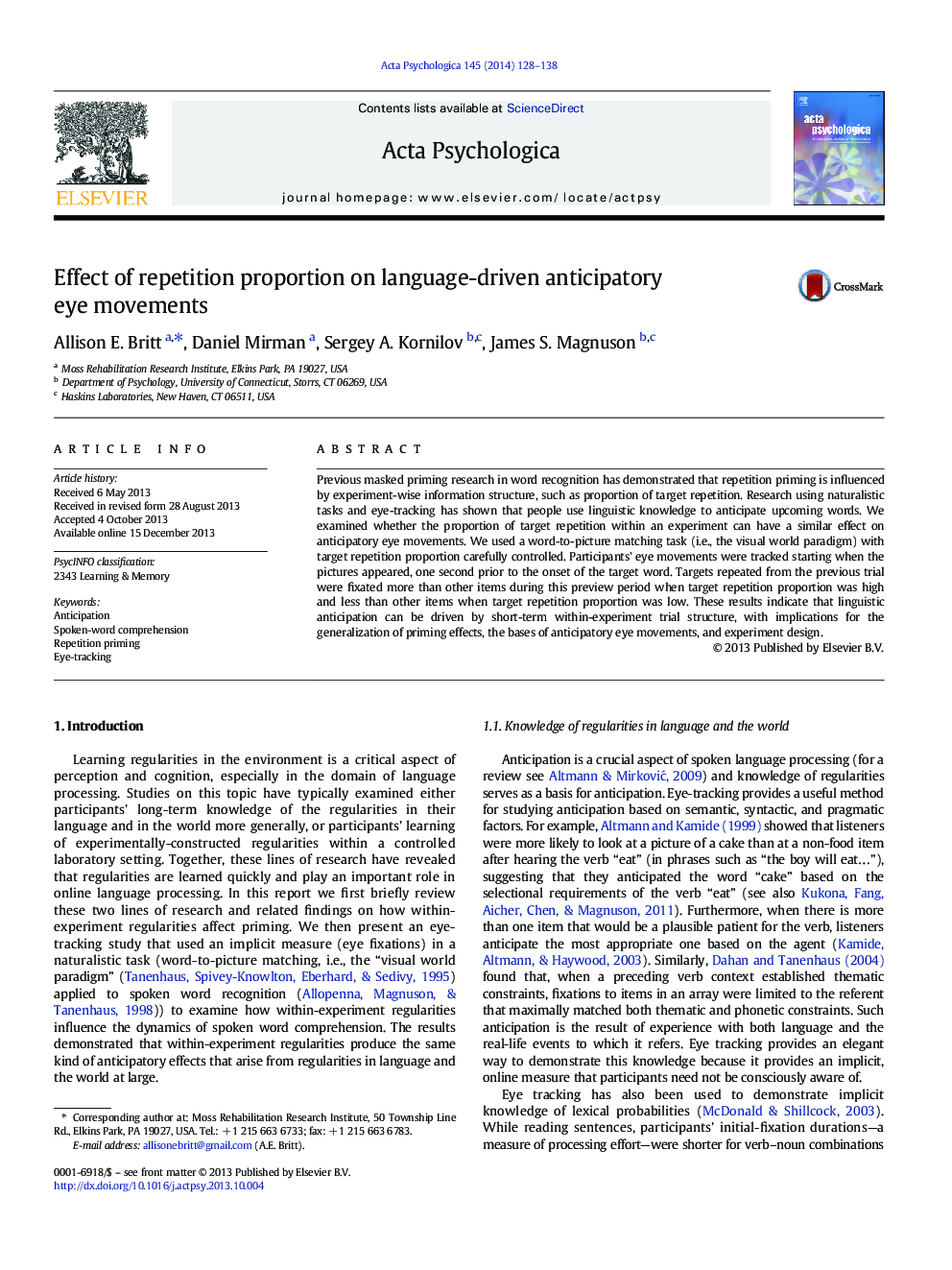| Article ID | Journal | Published Year | Pages | File Type |
|---|---|---|---|---|
| 919853 | Acta Psychologica | 2014 | 11 Pages |
•Effects of repetition proportion on priming were replicated with a new task.•Repetition proportion influenced anticipatory eye movements prior to target onset.•Experiment-specific information was used to make predictions about upcoming words.
Previous masked priming research in word recognition has demonstrated that repetition priming is influenced by experiment-wise information structure, such as proportion of target repetition. Research using naturalistic tasks and eye-tracking has shown that people use linguistic knowledge to anticipate upcoming words. We examined whether the proportion of target repetition within an experiment can have a similar effect on anticipatory eye movements. We used a word-to-picture matching task (i.e., the visual world paradigm) with target repetition proportion carefully controlled. Participants' eye movements were tracked starting when the pictures appeared, one second prior to the onset of the target word. Targets repeated from the previous trial were fixated more than other items during this preview period when target repetition proportion was high and less than other items when target repetition proportion was low. These results indicate that linguistic anticipation can be driven by short-term within-experiment trial structure, with implications for the generalization of priming effects, the bases of anticipatory eye movements, and experiment design.
